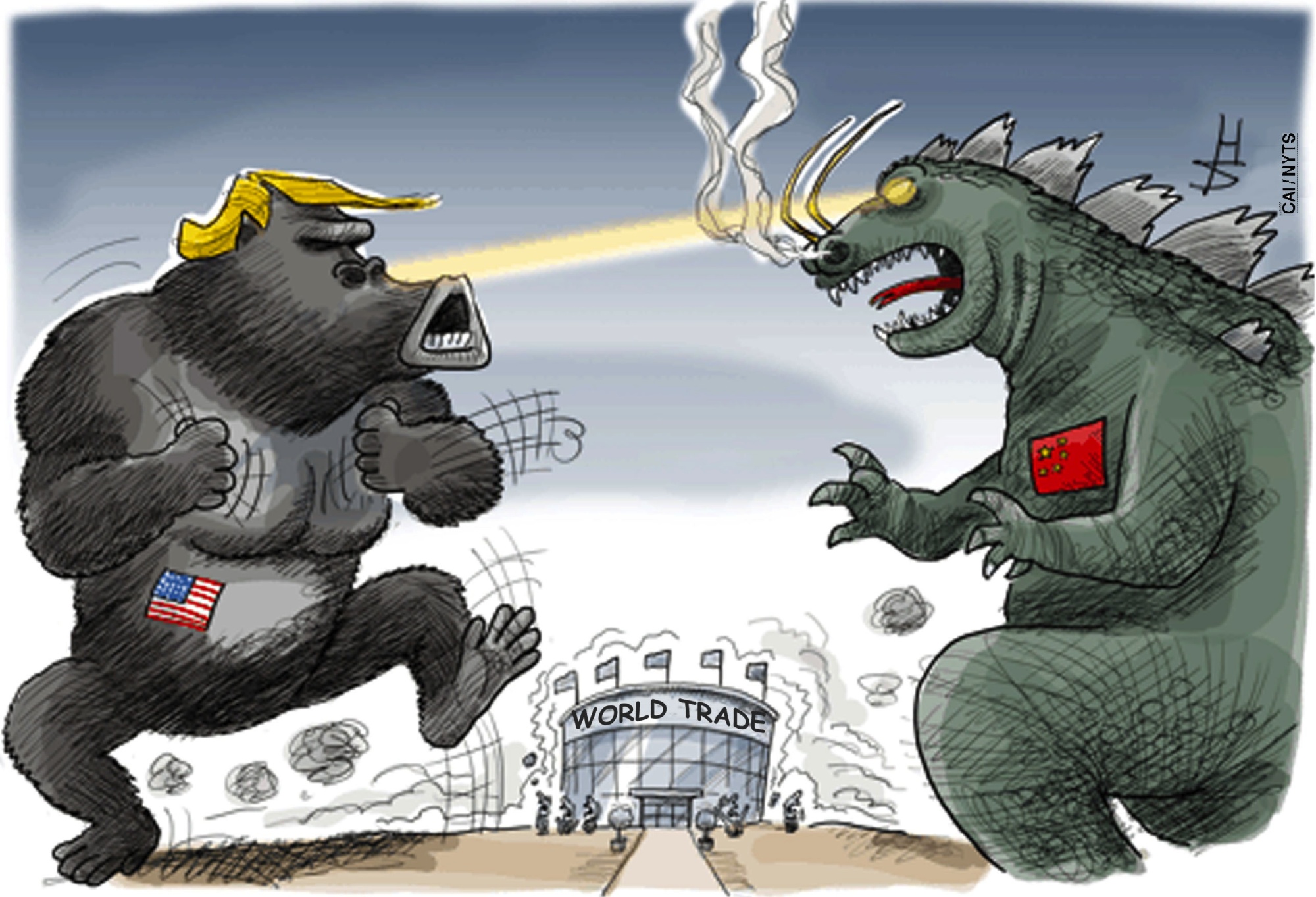Probably the question most frequently asked of international economists these days is: "Are we seeing the start of a trade war?" This is not a question that admits of a simple yes or no answer. In contrast to a shooting war, there's no government declaration to mark the official outbreak of hostilities. Tariffs have been raised and lowered throughout history, for reasons both good and bad.
Even when the reasons are bad, moreover, tariff increases do not always provoke foreign retaliation. There was no retaliation, for example, when U.S. President Richard Nixon imposed a 10 percent across-the-board import surcharge in 1971, arguably in violation of both the General Agreement on Tariffs and Trade (the forerunner to the World Trade Organization) and U.S. law.
But there's always the danger of events spiraling out of control. China has clearly indicated its intention of responding to U.S. actions, raising the risk of escalation by an erratic U.S. leader. President Donald Trump's threat on April 5 to impose tariffs on an additional $100 billion of Chinese exports, provoked by China's response to his own earlier action, points to just this threat of escalation.


















With your current subscription plan you can comment on stories. However, before writing your first comment, please create a display name in the Profile section of your subscriber account page.